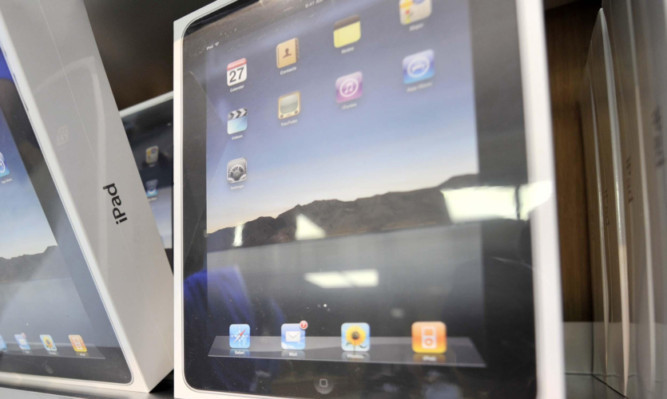A five-year-old boy who racked up a £1,700 bill in just a few minutes on his parents’ iPad has said he has learned his lesson.
Danny Kitchen innocently ran up the debt by playing a game which automatically billed his parents’ iTunes account as he progressed.
His parents, Greg and Sharon, provided the schoolboy with a password for the game after he told them it was a free download.
Despite having several emails from iTunes the next day itemising the successive £69.99 payments Danny incurred, the Kitchens dismissed them as simply an error – until a call from their credit card company made them realise what had happened.
Mrs Kitchen, from Bristol, told the BBC: “We were pretty distracted on Sunday with it being a family day. He’d asked my husband if he could have the passcode for a free download. My husband said no and he (Danny) insisted. He said ‘Please, Dad, it’s only a free one’.
“My husband put the iPad close to his chest, put the code in and gave him back the iPad. He continued to play for about 10 or 15 minutes because shortly after that we were due to go out so it wasn’t a long period of time he was playing.
“At 6am on Monday I checked my emails and I saw the repetitive emails coming through from iTunes. The first three were £69.99. It all looked like it was the same thing, I presumed it was a mistake.
“It was only when the credit card company called to say were these 19 transactions normal? I said ‘No, it’s not’.”
She added: “He (Danny) was very upset when he realised what he had done. His brothers and sisters were telling him off, but of course he didn’t know what he did – he’s only five. To be honest, I’m not sure how he did it.”
Mrs Kitchen said Apple, the company which owns and runs iTunes, had been “fantastic” in helping them get a refund for the money.
Describing how he came to rack up the eye-watering bill, Danny said: “I just clicked on it because it said it was free. I gave it (the iPad) to Dad, he put the password in, and the next day it cost the money.”
Asked what he had learned from the saga, Danny replied: “Not to do it again.”
But it does not appear he will get the chance.
His father said: “I have now barred the iPad from any more downloads, so that’s the end of that.”
Martyn Landi, writer with British-based Apps magazine, said parents concerned about their children running up similar bills should turn off “in-app purchases” on the iPad’s settings tab.
He added: “iPads are no longer a luxury within the home, they are a regular part of it. Children are becoming more tech-savvy and are attracted to the games on them.
“We are hearing stories like this all the time so credit to Apple for paying the money back. But it is a risky strategy for parents to simply think they can claim the money back if all goes wrong. A few seconds spent checking these things can save a lot of money and stress in the long run.”
As we reported, Apple has agreed to give more than $100 million (£66m) in iTunes store credits to settle a lawsuit by parents in the US who complained about big bills run up by children using iOS devices.
